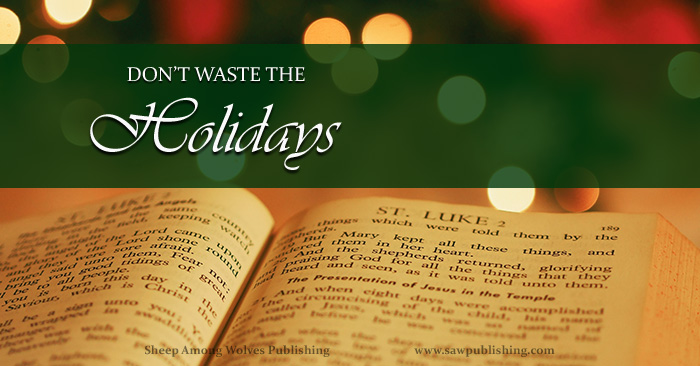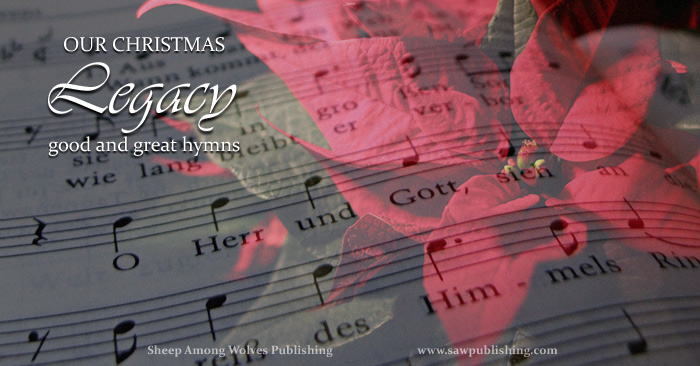Don’t Waste the Holidays: Reading Aloud to Your Children
 Are you planning on reading aloud to your children over the Christmas holidays?
Are you planning on reading aloud to your children over the Christmas holidays?
Holidays are a break from regular school, but do they have to be a break from education?
Christmas is a time for stories. Who would turn down the image of a cozy armchair, a blazing fire, snowflakes floating down outside the window—and a leisurely afternoon for reading aloud to your children?
Holidays play an important part in education. Particularly in our action-packed 21st Century lifestyle, they often provide our only chance to step back from the pressures of “things we have to do,” and take time for things we actually value. If reading aloud isn’t already one of those things, I’d like to give you a little nudge that perhaps it should be!
Reading Aloud Expands Your Child’s Mind
Reading good and great books is one of the most truly educational activities a person can engage in. When a parent reads to their child, they are actively exerting a powerful influence on the development of that child’s mind.
Reading aloud expands your child’s:
- vocabulary
- general knowledge
- range of experience
- thought process
- worldview
- appreciation of books
The impact of literature on our whole brain is profound. That’s the reason reading good and great books has such a profound impact on our children.
 Reading Aloud Answers Questions
Reading Aloud Answers Questions
On the surface, it would appear that once a child can read to himself, the activity of reading out loud to him becomes superfluous. In reality, this is far from true.
Even children who read fluently, and who approach new vocabulary with confidence, benefit from hearing that new vocabulary pronounced out loud—benefit doubly from having that new vocabulary both pronounced and explained. Most children will skip over an unfamiliar word when they are reading to themselves. Very few stories hinge so entirely on the meaning of “difficult” words as to force the reader to investigate that meaning. For some mysterious reason, very few children will put their book down to go and look up a strange word in a dictionary, but almost all of them will be quite willing to interrupt an oral story to ask any question which may occur to them.
This principle extends far beyond vocabulary. Reading, as we have already observed, opens a child’s mind. And a mind that is being opened is usually flooded with questions. Many of them are questions which, when answered, substantially mould the reader’s worldview. Reading aloud lets you be there to answer your child’s questions in a natural and meaningful way, as they arise.
Reading Aloud Builds Relationships
Spending time together is a substantial ingredient in building healthy relationships. Spending quality, thought-provoking, problem-solving time together doing something that is enjoyable in and of itself, (and doubly enjoyable because you are doing it together,) is even more valuable.
Cultivating the habit of reading aloud—and yes, I use that word habit advisedly—just might prove one of the most significant choices you make in building a positive relationship with your children. The vast majority of children really like being read to. Even children who don’t like reading to themselves get excited when somebody else reads them a story.
Reading Aloud to Your Children is Worth It!
You will not regret the hours you spend reading aloud to your children. Not even when you stay up past bedtime trying to get to a good “stopping place,” or forget to put dinner on because you’re so absorbed in the story.
Okay, maybe you might regret which hours you picked to do it in . . . particularly if it was the night before a family get-together, or the dinner when your husband was bringing home guests . . . but you get my meaning. As a broad and general principle, when you look back at choices you made during their childhood, you are not going to regret the fact that you prioritized reading aloud to your children.
That’s what I really meant to say, anyway.
And holidays are a great time to start, because holidays are a great time to strengthen relationships, and build lasting memories, and lay the foundation of a lifelong spirit of Christ-centred learning. In fact, the holidays are too great a time to waste!
By the way, if you happen to be interested in a FREE downloadable Christmas story, don’t forget to check back to the Sheep Among Wolves blog next Monday morning. You just might find something you’d enjoy!
Are you looking for other ways to embrace the wealth of worthwhile Christmas literature? See our previous post:

Does cooking for holidays leave you feeling stressed? Today’s Timeless Tip from Homemakers of the Past offers some simple ways to turn holiday leftovers into easy meals—and reduce your stress at the same time.

What does a SAW Publishing book review look like? This post will help you understand the process we use to create book reviews that reflect our goal of promoting good and great literature for the entire family.

How do you consistently evaluate poems, from a literary and also a spiritual perspective? This post offers three keys to recognizing poetry that will be a blessing to yourself and your students.

